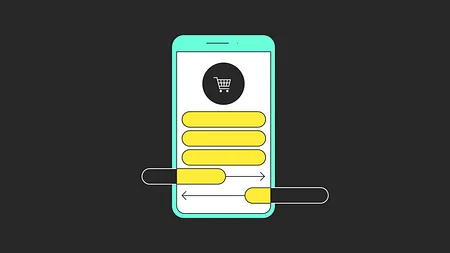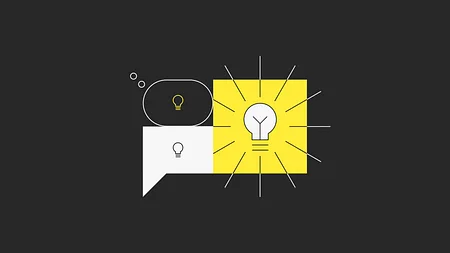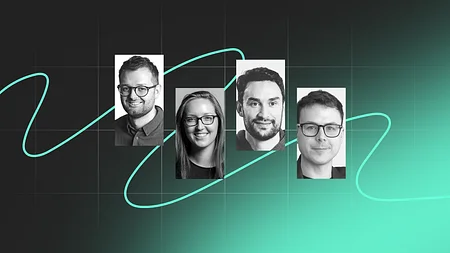How to Build a Bank - Our Interview with Monzo
FinTech Insider takes a field trip to Monzo to chat to Jonas Huckestein (Co-Founder/CTO), Leah Templeman (Head of Operations), and Hugo Cornejo (Head of Design). They talk about their community-based, collaborative work model, what their full banking licence will bring, and how they plan to win over a billion customers.
The following excerpt came from the first part of our interview with Monzo. Listen to episode 130 of FinTech Insider to hear the whole thing.
Can you tell us a bit more about Monzo?
Jonas: “We’re a brand-new smartphone bank, initially in the UK only. We’re currently in the process of getting a [full] banking licence from the two regulators here. In the meantime, we have these shiny, hot-coral cards that you might have seen…that we’re giving to our users so that we can develop our product until we issue full current accounts next year.”
It feels like it’s a movement, not a company…. How much is that community a big part of what you’re doing?
Jonas: “Everything has originated from a very, very small group of people, a year and a half ago…We had these very first prepaid cards, and we started inviting technology-savvy people in London to our offices for a hackathon to build cool things. We had a few hundred people like that, and then they told their friends, and then they told their friends. People would still consider themselves to be the members of a community as opposed to the users of a card that gives you free foreign transactions.”
Leah: “The biggest thing, I think, is getting a whole mass of thousands – tens of thousands – of people to feel like they are building this bank. And they are…. And I think that’s what really sets us apart from other competitors.”
I imagine you must have lots of people coming to you with feedback, right?
Hugo: “It’s usually very hard to present something to the world that is not polished and is not finished – because you have your pride. We’ve been switching that…and what you get in return is so valuable. Because people are helping you, and it’s kind of like an exercise to be more humble. For example, we run user testing here in our offices every week. Those are great opportunities. We have people here, and they tell you: ‘This is not working, you should fix it.’
“[Also], our roadmap is public, so…you can see a bit of strategy, and have an impact on that.”
Who is this customer? Are they just tech-savvy people from the London area, or has that changed…?
Hugo: “Most of our customers are still tech-savvy…and mostly men, which is another big problem. But we are trying to fix that, trying to listen to people that are different, people that really don’t have that much disposable income or don’t know about technology.”
Jonas: “For the first time, at least in my life, it’s working on something where every single person I know actually has a need for this and can benefit from it. And probably, if they used it for a while, they would really, really like it…. Objectively, at the moment, there may be other fintech companies and prepaid cards that have a similar experience – but banks definitely don’t at the moment.”
“I think the end goal is that every single person on Earth should be able to download, on their smartphone, this app, and derive some kind of value from it. So ultimately, really, that is where we need to get to. Baby steps!”
In terms of functionality…once somebody’s picked up the app, what are people finding the most useful?
Hugo: “For me, there are probably three things. The fact that it’s realtime…for me, that’s really important. I know constantly my bank balance, what I can afford. The second one is this idea of doing everything from the phone. I hate going to the desktop, and taking the pin-reader. And the third thing would be to keep that record of everything. I try to control spending on Domino’s Pizza. Now I know how much I’m spending! It’s not even about money; it’s more of a lifestyle thing.”
Leah: “For me, realtime notifications make a huge difference. It’s amazing how quickly you get used to them. I had a time where I dropped my card…had gone home…and suddenly my phone buzzed and was like ‘£10 at Tesco.’ That’s interesting! Because you can freeze the card in the app, as well…that’s immediately what I did….
I also love the ability to send money within Monzo. It makes it great when you go out for a meal, that you can just select someone from your contacts, and the money is gone – and you can see that it’s gone immediately.”
There is definitely something about, when we bump into execs…they want to show us their Monzo card to prove that they’re cool, too! It does speak to them wanting to learn.
What don’t you like? Are there things that still frustrate you?
Leah: “[Not] being able to send payments to people outside Monzo. It is definitely difficult sometimes. None of my family have iPhones, and so they’ve only recently come onto Monzo.”
Jonas: “Certain things you can do on a prepaid card, and you can improve them, like the instant notifications…but certain things you just can’t do until you’re a bank. So I think the worst thing about Monzo at the moment is it is not a full bank…”
What changes [will occur] when…you’ve got the full licence?
Hugo: “All the things you expect from a current account. Things like getting your salary paid into the account, or being able to pay your rent from the account. To, then, things that sustain our business model like, for example, overdrafts. And then cooler things like…grouping transactions that are recurrent. And I don’t mean just direct debits or standing orders. Like, for example, Netflix is recurrent, right? They charge you every month. Or Spotify…”
Where are your hires coming from? Are they coming more from the tech and startup space? Are you bringing people from the old world of banking?
Jonas: “I think there’s definitely a hodgepodge – that’s sort of the whole point, right? What’s happened here is, through a series of fortunate events, we have people from all kinds of different backgrounds working together. And there’s this process of osmosis that happens where people from a financial client background or a risk background can learn about how Silicon Valley startups are started, and people from technology, like myself, can learn about how banks work, and how banks manage their risk.”
What are your anxieties? What are the things you hope work out well?
Hugo: “We are really ambitious. We have this idea of being the first bank with 1 billion customers. We believe that’s going to happen – someone is going to do it. So, my fear would be if it’s not us! It’s like, who’s the Uber here? I hope it’s us.”
Leah: “For me…my biggest fear is that we don’t go mainstream. We did this really humbling exercise this week where we were collecting data from people going through Old Street Station, to see how many people were aware of Monzo. 80 percent-ish had no idea what we were talking about. And then we’d tell them a little bit about it, and it was surprising the number of people who were like ‘yeah…I’m pretty happy with my bank account at the moment’…. The amount of apathy out there is not to be underestimated. The way we get round it is we make it extremely easy for people to try it.”
There’s a lot of other challenger banks coming out in this space. Do you think there’s enough space for all of these challenger banks coming to market?
Jonas: “Definitely, yes. There’s this idea of a rising idea lifting all boats – the big banks in this case. Basically, if we all start with no customers, then we’re not going to be able to cannibalise each other. All we can do is cannibalise the large players. We love every marketing pound spent furthering the notion that you could somehow, safely, move your paycheque to a challenger bank. We’re absolutely happy to compete with everybody on product. We don’t even think it would be better if we were the only ones doing it, because it gives you a sense of legitimacy in the eyes of the customer.”
The reason I never did the account-switching thing is because I didn’t believe any of the account-switching guarantees!
Hugo: “We kind of see it, like, when you change your email provider…it’s a pain in the ass! You need to contact all your friends and say ‘now my new email address is this’ – but you do it because…it’s amazingly better…”


